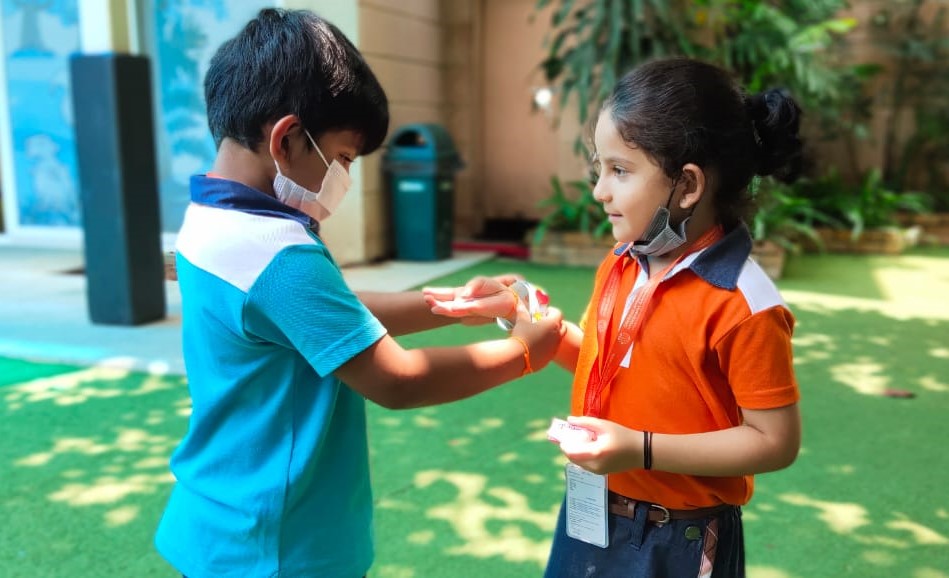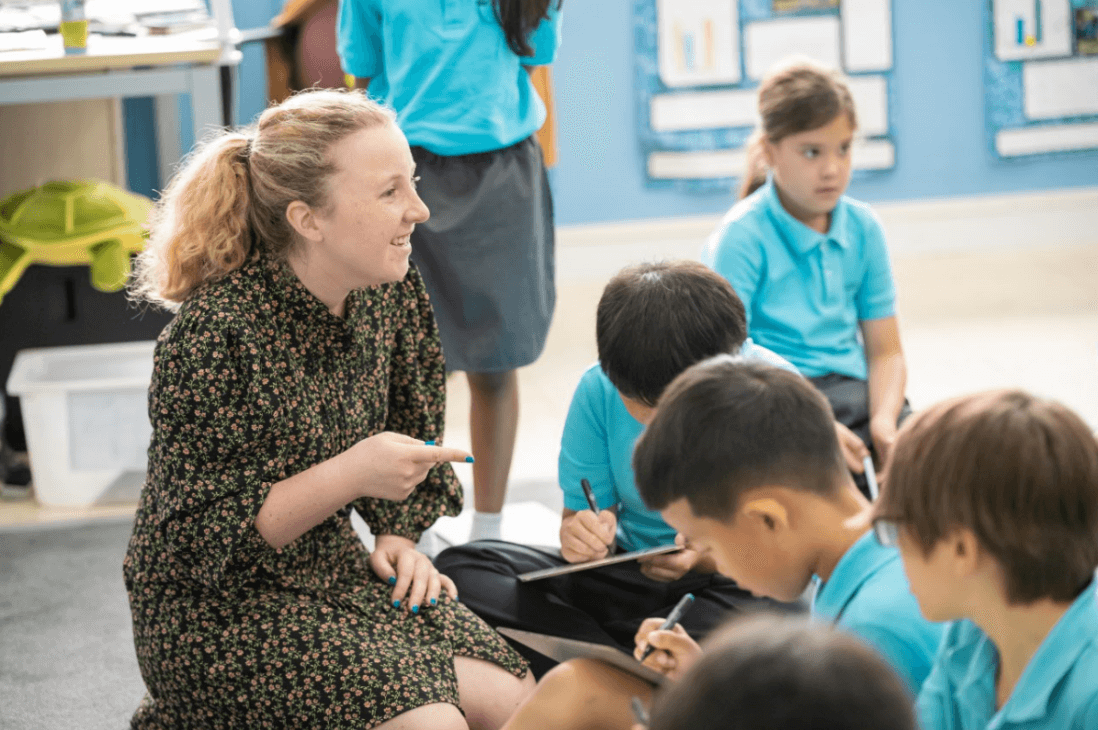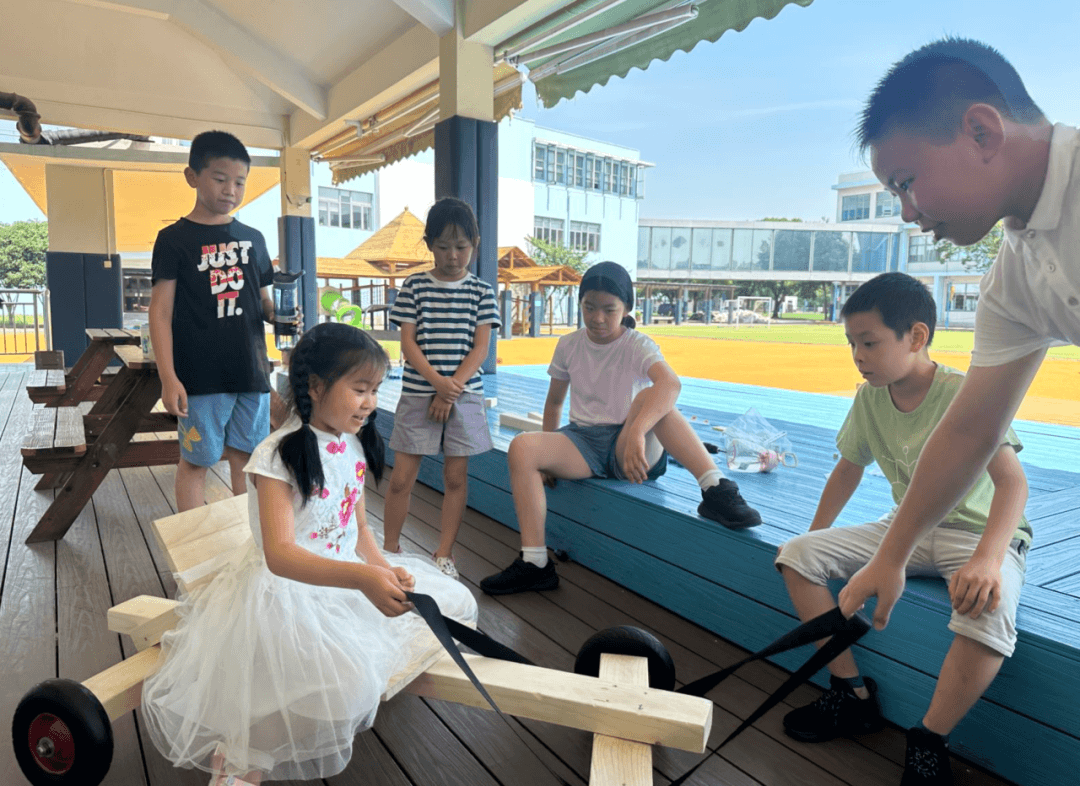As your child begins their education journey in preschool — or even if they’re a bit older in primary or secondary school — creating friendships is vital for their social development along the way.
Yet sometimes your child may need an extra nudge to build (or perhaps strengthen) their friendship-making skills. This is especially true in their Early Years as they begin to form their first meaningful connections with others.
Kathakali Roy, Early Years Coordinator from Oakridge International School Gachibowli, writes with some helpful tips on how you can support your child in making friends, with a focus on when they’re getting started at school in their formative years.
How important are friendships for a child’s development?
When a child starts their Early Years adventure, it often means they don’t yet have much social experience outside of their small family circle. Friendships are how they’ll learn many foundational social-emotional skills such as empathy, cooperation, and problem-solving. Friendships also tremendously impact their wellbeing, with opportunities to strengthen skills needed when they grow up.
Learning how to be a friend involves body language, emotional intelligence, and conversational skills. But learning these skills may not come easily to all children and — as every parent knows — will be accompanied by many different emotions. For example, when children decide to play in the kitchen corner, they’ll need to decide what roles to take and what to do — not everyone can be the head chef!
In school, your child will start to build vital social skills such as sharing, taking turns, cooperating, listening to others, managing disagreements, and seeing other people’s points of view. They need to learn how to approach others who are already playing, how to invite others to play with them, and how to settle problems in sociable ways.
Your child will naturally show preferences for some peers over others when they meet new people. At age three, some children will clearly know who their friends are, whereas others may not have friends they can name yet, but they might be keen on interacting with others.
How can a parent support their child in making friends at school?
You can help support your child make friends in lots of different ways, and these are some of my top tips:
- Children learn by watching and mirroring
You can demonstrate and rehearse social skills with your child, covering everything from maintaining eye contact to not interrupting and even sharing toys. Progress often comes slowly, so praise your child for their efforts.
- Talking and listening
These are also important skills for friendship — for example, showing interest in what others are saying without interrupting, and learning how to ask questions. Family meals can be a great time to role-model these skills and to give your child a chance to practice them.
- Winning and losing graciously
Thisis another skill parents and guardians can model, and that your child can practice during family time. Board games are particularly good for this and will help your child understand that they can’t win all the time!
- Create special moments
I’d suggest planning quality time with your child several times each week to have fun together, just you and child, without directing their behaviour. Building a relationship with your child pays off in terms of their own friendships, and studies show when parents work on relationship-building at home, they see better behaviour in their child’s peer relationships right away.
How can you step in if your child is struggling to make friends?
- Encourage playdates
Whether at your house or a friend’s, encourage them to take part in extracurricular activities. Bonus points if you find events that encourage social behaviour like a team sport where your child must work collaboratively with others.
- Role-playing
Using imaginative play, they can practice how to make polite conversations with others. Encourage your child to make eye contact, use a natural smile, and provide honest compliments, such as “I like your artwork.” Children can also be encouraged to volunteer to help their peers when in need. Using role-playing often helps children practice these skills.
- Talk to your child’s teacher
Just remember that teachers are here to support you and your child if you are worried about them not making friends. There will always be ways to accommodate and help in the classroom if your child finds it difficult. As experts in their field, they will be able to identify any developmental needs. At Nord Anglia schools, we treasure our relationship with parents and view this as a partnership where we’re all working together toward a common goal: your child’s success.
How do teachers help their students to make friends?
As I said, teachers play a major role in supporting your child to make friends at school. As one small example, Early Years teachers will often focus on reading stories about the value of friendships, which can leave a long-lasting positive impact on children in their formative stages.
Teachers can also encourage and express friendship in and around the classroom by showing positive actions such as smiling or sharing. This may sound basic, but it’s proven to work!
Lastly, grouping smaller numbers of children together for activities can be less overwhelming for those struggling. Pairing children as buddies for collaborative work in the classroom helps them make new friends. I’ve found seat planning to be a valuable way to create new environments for the children.
Final thoughts
Hopefully these top tips will help you encourage your child to get out of their comfort zone and make connections in the classroom and on the playground. You’re their main role model so finding ways to encourage friendship-building skills at home is key here. And remember that your child’s teacher is always available to help!
Kathakali Roy is Grade Level coordinator for nursery and early years at Oakridge Gachibowli School.





.png?h=615&iar=0&w=1080&rev=3b8909e15a4b407eac6584814159f209&hash=7C3DADCC09910D9FEC18B750405CB580)

.jpg?rev=-1&hash=4B1ADA74AB0E829CB2ECEE6BEF89D006)